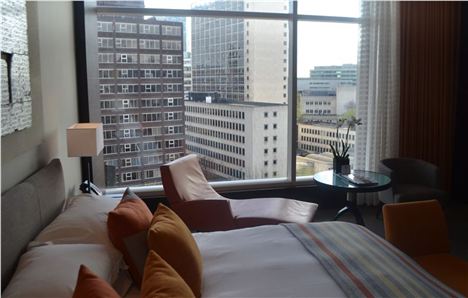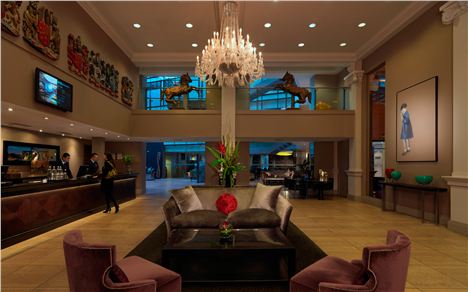2014 saw another record breaking year for Manchester's hotel industry.
"We cannot afford to be complacent; Manchester is competing for tourism on an international stage and competition is fierce."
Manchester city centre achieved an average annual occupancy rate of 79% in 2014, surpassing last year's previous record of 77%, according to research by STR Global.
The news follows this Confidential article back in November 2014, which revealed that Manchester hotels were among the best performing in all of Europe alongside Geneva, Lisbon and Budapest.
Additionally, the city's hotel industry is set to benefit from a further 800 rooms over the next twelve months, including: 330 rooms in Motel One by Piccadilly, 208 in Innside by Melia at First Street, 138 at Hotel Football by Old Trafford, 66 in Hotel Gotham on King Street and another 40 nearby at King Street Townhouse.
By the end of 2016, it is estimated that central Manchester alone will possess over 11,000 hotel rooms.
Nick Brooks-Sykes, director of tourism at Marketing Manchester, said:
“2014 was a very good year for Greater Manchester’s hotel industry with occupancy levels outstripping previous records set across the conurbation. To see figures continue to rise alongside ever-expanding bedroom stock speaks volumes about the current health of our tourism industry.
“There are a number of new hotel operators preparing to enter the market in 2015 and notably many of the city’s existing hotels are currently upgrading their facilities. This investment is very well-timed as the tourism calendar is packed with new developments and drivers.
“We kick off with the reopening of the Whitworth in a couple of weeks; the opening of HOME follows in May; the Manchester International Festival and Manchester Pride’s 25th anniversary take place over the summer; Rugby World Cup comes to Manchester in October; and then before you know it the Manchester Christmas Markets will be back.”
“This is really good news for Greater Manchester and reflects the hard work of many organisations and people in developing and promoting our destination. But we cannot afford to be complacent; Manchester is competing for tourism on an international stage and competition is fierce."
Paul Bayliss, chair of the Manchester Hoteliers Association, added:
“It’s always good to see growth in hotel occupancy levels; however, achieving a record year like this is particularly satisfying following the difficult years experienced during the economic downturn. The region’s profile is undoubtedly on the up and as a result we’ve seen a noticeable increase in forward bookings, particularly when the city is hosting major events, conferences and festivals.
“The demographic of our staying guests also continues to diversify; they continue to look for a more sophisticated and novel offer and Manchester as a city continues to provide it through its consistent regeneration programmes in both leisure and supporting services for commerce sectors as new businesses make the city region their home.
“With increases in visitors from places such as China, India and the United States the future looks bright for Greater Manchester’s hotel industry and we’ll be working closely with partners such as Marketing Manchester to nurture future growth.”
Tourism is estimated to generate £6.6bn a year for Greater Manchester.












